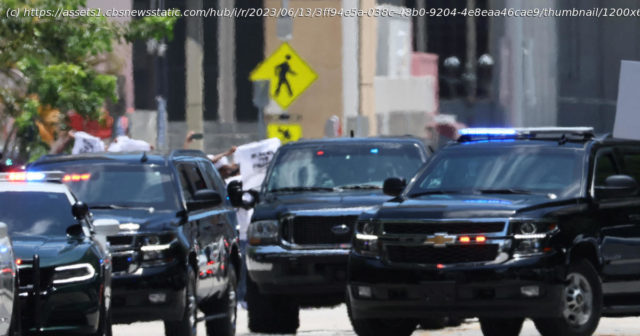It’s a question that’s perhaps less theoretical with the first-ever federal prosecution of a former president who’s seeking the office again.
The first-ever and indictments of a former president — and one who is running for the office again — have raised legal questions around whether a president may pardon himself.
Neither trial is underway yet, but in the federal case, former President Donald Trump faces 37 serious charges as he leads a crowded field for the 2024 Republican presidential nomination.
„The big unanswered question is whether the president might be able to pardon himself,“ Jeffrey Crouch, an assistant professor of American politics at American University and an expert on executive clemency. „No president has ever tried it, so we don’t know what the result would be if it was attempted.“
The Constitution gives the president broad power to pardon federal crimes, except in cases involving impeachment. The president also can’t pardon state offenses. Apart from that, in explicit terms, the Constitution is quiet. And history and precedent don’t offer significant insight, says Harvard constitutional scholar Mark Tushnet.
„The arguments about whether a president can pardon himself are not only unsettled in the sense that they haven’t come up before, but they’re also unsettled in the sense that reasonable lawyers could look at the materials and say either result is legally defensible,“ Tushnet said.
One thing that’s „settled“ in law is that a pardon „has to be for something that the recipient of the pardon has already done,“ said Brian Kalt, a professor at Michigan Law School who wrote about the possibility of self-pardons in 2008. „You can’t pardon future acts.“
However, the presidential pardon may be used if the acts have taken place, even if the courts have not yet taken action, the Supreme Court ruled in 1866.
The president’s pardon power „extends to every offence known to the law, and may be exercised at any time after its commission, either before legal proceedings are taken or during their pendency, or after conviction and judgment,“ the high court ruled.
In 2020, just before he left office, Trump, according to the New York Times, considered granting himself, as well as his family and allies, preemptive pardons, arguing his political opponents would use the courts to go after him after he left office.






